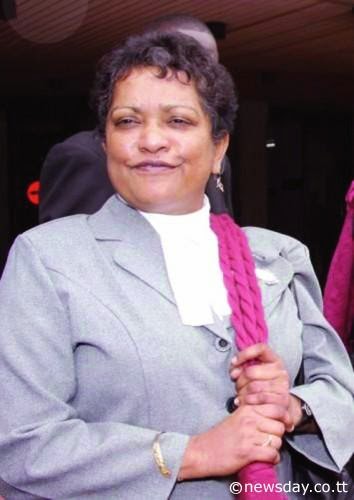Households’ role in violence : Don't Blame the Poor.
One Caribbean Nation.
by Professor Sir Errol R.Walrond
Some 50 years ago there was an
informal forum where politicians from
both parties and others would gather,
relax and candidly discuss issues of
the day. I recall a new minister stating
that their first priority was to get the
streets clean “for the tourists”. He was
met with the retort from someone at
the table that they should “get the
streets clean for us first, then they
would be clean for the tourists”.
The echoes of this type of thinking
persist to this day as with the tax
relief for repairs/improvement on
villas but none for “ordinary” house
owners, or the recent Holetown
redevelopment plan.
Satisfying tourists. On that occasion 50 years ago, the
conversation shifted to other topics
of development and it was posited
that Jamaica had gone the way of
satisfying the “tourists” need for a
marijuana fix and the accompanying
gun enforcement of the trade had
evolved into corruption of some
elements in the police force and had
become embedded in the political
culture. It was posited then that lest we go
the same route, we should try to stem
the growing culture that any dispute
or burglary is best met by a gun. The
new minister roundly ticked off by the
comment, declared that it was foolish
to believe that Barbados would ever
follow the path of Jamaica in this
respect, and to emphasize his point,
he pulled his own gun from his pocket,
put it on the table and announced that
“anyone who troubled him would get a
piece of this”.
I silently hoped then, that the
situation I left in Jamaica would
never be manifest here. For I recalled
when I had asked a colleague who
was running for political office, how
they were planning to cope with the
increasing reports of guns being
issued by the opposing
party, the response
was “We will
match them
gun for gun”.
That chilling
connection
between
armed
“gangs”
and
political
figures was
established
in Jamaica
back then.
I decided
not to
engage in that
conversation with
the new minister and
perhaps I should have
done, for one has seen over
the years a gun brandished in our
parliament and alleged “drug lords”
invited to the Opening of Parliament.
We have recently heard what I heard
in Jamaica so many years ago, “law
abiding” citizens vociferously arguing
that they must be armed, not just the
police and the army. I knew several
such vociferous gun owners who
lived to regret their boasts when they
became targets to get their guns, most
emigrated in great haste.
called upon to be no-nonsense in their
response, and attendance at church is
proclaimed the answer.
However, it appears that in spite of
the proliferation of churches in both
communities they have not yet found
the way of getting most young males
into their congregations as in times
past. In all these years, I have never
heard the church ask why they no
longer attract those soprano voices
into the choir or any other part of
church activity?
How many in our community
proclaim that we are on the path to
madness but are loathe to learn the
lessons from similar communities that
have trodden a similar path?
Poor households. The young
men and boys
from poor
communities are
blamed
for the violence
and often pay
with their lives.
Part of that pathway is the neglect
of early childhood education and
placing the blame on parents,
particularly those from
poor households.
We refuse to
acknowledge
that part of the
development
of our
community
has been
the break
up of the
traditional
households
where
capable
women,
and some
men, were
outside of the
workforce and
with a primary school
education only could not
only provide parental guidance
they were educated enough to push
their children to strive for a better
education.
Our governance in our Caribbean
countries has properly taken pride
in education achievements at the
secondary and tertiary levels and
the performance of those people
both abroad and at home. But our
governments should not feel that the
provision of “free” education is their
only responsibility, the quality of that
education at all levels must be their
prime concern.
Blamed for violence, so far, the responses here in
Barbados mirror those in Jamaica
so many years ago. The young men
and boys from poor communities are
blamed for the violence and often
pay with their lives. The police are. It is time to rescue those who are
still left behind, and no amount of
trying to blame the parents, or a
particular assessment process, will
do, other than increase the resort
to violence as the only means of
validation of those who feel left behind.
The Mahogany Coconut endorses the position of Profesor Sir Errol Walrond
From the Nation Newspaper.



Comments